Opinion
How efficient are our police?
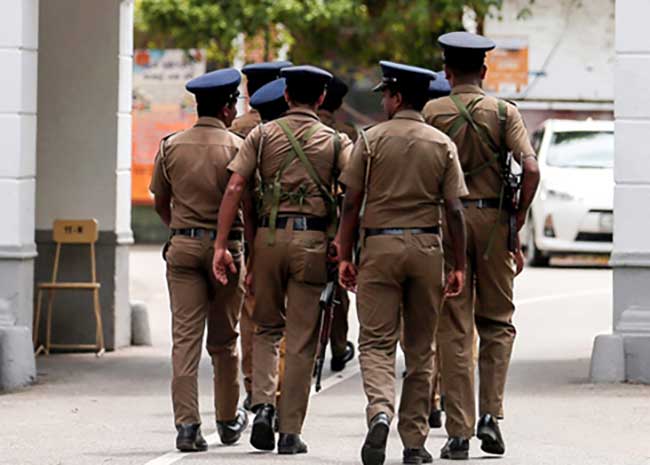
A friend of mine related the experience he had after some burglars had tried to enter his house. Fortunately for the occupants the burglars could not enter the house. As they had installed CCTV cameras, the whole episode had been recorded on them. When he telephoned the police and informed them, indicating that the persons could be identified by going through the recording in the cameras, the police had asked whether anything had been stolen. As the answer was in the negative, the Police had stated that if nothing had been stolen, no action could be taken against the intruders.
This is the usual reaction by the police in Sri Lanka. When a robbery or murder is committed, the police will come to the scene of the crime and the first question they ask is who do you suspect. If the victims suspect anyone, they could attend to it themselves without troubling the police.
The efficiency of a police force in any country could be judged by the general appearance of the persons in service. In Sri Lanka, about seven out of ten policemen you see daily would be in bad shape. That is, they would be having bulging stomachs so that they would not be in a fit state to give chase after a criminal in a hurry!
Gradually, the Police seem to be getting corrupted with some policemen involved in the distribution of narcotics, others taking bribes, some trying to help murderous criminals to escape from police custody and some even involved in murders. These were never heard of in the good old days where every policeman was respected.
Now even with a top-heavy police force with so many Senior DIGs and DIGs around, the criminals seem to be having a field day! The crime rate of has increased by leaps and bounds while the government is haggling over the appointment of the next IGP.
It is time an efficient IGP was appointed to put things right in the Police Department.
HM NISSANKA WARAKAULLE
Opinion
Cost of ‘Sinhala Only’
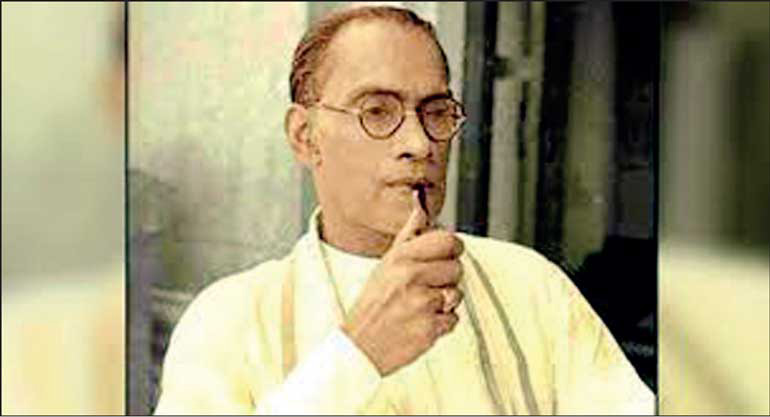
B. Perera (The Island of 22 Jan.) has said that what SWRD Bandaranaike did paved the way for generations of a ‘non-English background ‘children of All Races, even to rise to the top levels of positions in some world organisations, i. e. the UN, NASA etc.
Not true. All the Sri Lankans who rose to the top in the UN and in NASA, viz., Jayantha Dhanapala, Shirley Amerasinghe, Gamini Corea, Lakdasa Hulugalle, David Loos, Dr. Herat Gunaratna, Cyril Ponnamperuma and several others had their Secondary and University education in Sri Lanka in the English medium.
Look at the top-class Civil Servants that Sri Lanka had, K. H. J. Wijayadasa, D. B. I. P. S. Siriwardena, Arthur Van Langenberg, N.Q. Dias, David Loos and several others. All had their Secondary and University education in Sri Lanka in the English medium.
SWRD’s ‘Sinhala only ‘paved the way for Secondary and University education in the Sinhala medium and none of those graduates rose to the top in the UN and in NASA.
Prior to 1956, when the medium of instruction was English, there was discipline in schools, in Police Stations, Government Offices, in Kachcheries, in Hospitals, in Parliament and indeed almost everywhere and there was only very little bribery and corruption. Discipline as well as orderliness in the workplace was one of the bi-products of the system of English medium education that Sri Lanka had. The rot started with SWRD’s ‘Sinhala Only’ policy.
After 1956, India and Singapore did the opposite; they started putting more and more emphasis on English, they made English the medium of instruction in Secondary Schools and Universities. Look at the prosperous economic situation in India and Singapore and then look at Sri Lanka going to the IMF with the begging bowl.
Instead of introducing ‘Sinhala only’, if SWRD had made both Sinhala and English compulsory subjects for GCE O/Level and provided sufficient numbers of Trained English Teachers to Provincial Schools, the damage would have been less.
What SWRD did has become a catastrophe for Sri Lanka.
International schools have stepped into the vacuum, they produce students who are proficient in English and they get the best jobs and millions of provincial school children end up getting only the crumbs.
Lokubandara Tillakaratne has hit the nail on the head in his recent article, The Island, ‘National schools, provincial schools, and international schools: A state-consented neo-caste system’.
National schools, provincial schools and international schools: It is indeed a state-consented neo-caste system.
Dr. Harini Amarasuriya, the ball is in your court now.
Anton Peiris
anton25ps@gmai.com
Opinion
Education and reading

All educated, cultured people know that reading is a virtue to be encouraged in both children and adults. It is an essential means of acquiring information and knowledge. Historically, books have served a great purpose in recording knowledge gathered by writers and scholars all down the ages. Both cultural and scientific knowledge can be passed down from generation to generation leading to a cultured, literate, knowledgeable society – a society with ‘depth’.
Children can gain a thorough knowledge of their own culture rapidly, by means of reading some recommended books. Reading is an activity that undoubtedly moulds and shapes a young person’s thinking and so, personality: knowledge can bring confidence in speech, especially when discussing ideas with others. It gives food for thought and so, promotes the readers ability to understand and so, his thinking faculties. A young mind has plasticity. It can accept differences, it can learn new ideas easily, unthinkable things: cold fusion; that planet “earth” is a highly electrically charged body in space. A child will keep an open mind on an idea that an older person, a parent may reject: mind plasticity is the essence of “the age gap”.
What you think makes who you are: widely read people, people with a more developed mind, can react to a new situation in a better, more relevant way. The Greek philosopher Plato gave us much food for thought when he wrote his amazing, “Allegory of the Cave”. It is good!
A developed mind is freer to dream and to speculate. It is a developed consciousness that can be creative, unbounded and limitless. Scientist Steven Hawkins, although severely disabled, was able to use his brain professionally, to try to understand the mysteries found in the vastness of outer space and its workings.
People’s reading matter should be attractive and in step with their age and needs. Regular visits to a public lending library are a boon to the enquiring mind. Who was Shakespeare or Charles Dickens or Montagne or Galileo or Isaac Newton or Faraday or Maxwell? Wikipedia is very valuable for answering such questions.
There is plenty of misleading literature, too! The winners of wars, the conquerors, write the history books! To get to the truth of a matter it may be necessary to search far and wide! Any visit to the internet will demonstrate competing and opposites points of view. Only after time and experience can a commentator’s words be judged as worth accepting as true.
Then, there are politically sensitive matters in which people have taken sides as how as to interpret politics – choose your own truth! And then there is all the debunking people do of other people’s writings. Sadly, many people are drawn to startling, dramatic headlines, eye-catching news, gossipy information, fashion, etc., where little thought is needed. The reader is asked to keep his feet on the ground and be able to see faults in opposing views. It is an education to see on YouTube all the conflicting ideas claiming truth. Everyone needs to develop the habit of thinking critically about what other people say and claim.
Priyantha Hettige
Opinion
Nalini S. Kariyawasam – A personification of charming magnanimous lady
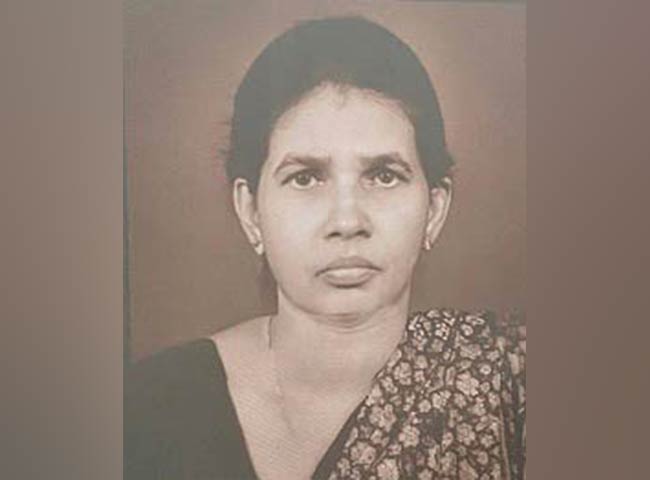
Third month remembrance
As a Buddhist she followed the precepts with care
Instances where she missed them were rare
She always tapped the goodness of people
Never jealous, never prejudiced or never gossiped with others
Our home was the MAHAGEDERA for all relatives
A sensitive heart is wider than the universe
At the village, she was at home with kith and kin
Fulfilling all chores with respect won
Sometimes we agreed to disagree with some issues real
But she accepted the decisions with a refined smile
I see her everywhere but not physically anywhere
Light of life has gone out leaving us in emptiness
No language has words to render
The feeling of the heart so dear
How can one forget the swelling memory river
As rhymed ‘sada me sansare ape hamuvima nowe’
Is a truth about the ‘Sansaric’ process so clear
But let us wish to attain the Supreme bliss of Nibbana together.
C. Kariyawasam
-

 Business7 days ago
Business7 days agoCustomer service to new heights with Digitalized Contact Centre for Union Bank
-
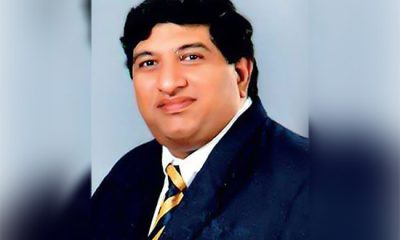
 Business5 days ago
Business5 days agoMember, National Council for Road Safety
-
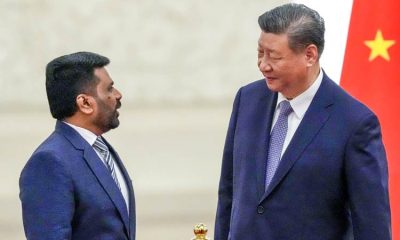
 Features4 days ago
Features4 days agoHambantota oil refinery – From fairy tale to reality?
-

 Editorial6 days ago
Editorial6 days agoCost-cutting and hypocrisy
-

 Editorial7 days ago
Editorial7 days agoComrades see red
-

 Sports4 days ago
Sports4 days agoMr. Neil Perera passes away at 95
-

 Latest News4 days ago
Latest News4 days ago2024 Grade 5 Scholarship Exam results released
-
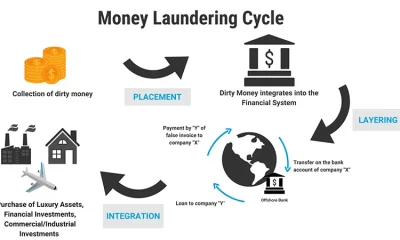
 Features6 days ago
Features6 days agoGlobal challenges, mechanisms, and strategic solutions










